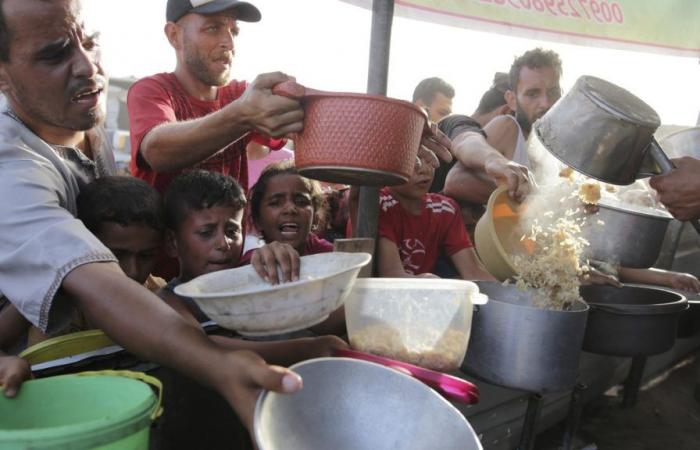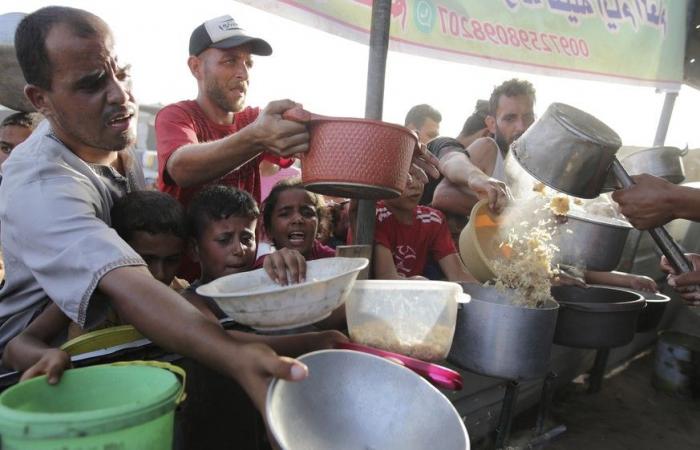Palestinians demanding food in the Gaza Strip.Keystone
The Israeli government has denounced a report on famine in Gaza, saying the data is false and manipulated by Hamas.
More from “International”
Israel on Thursday rejected a UN-backed report saying nearly half a million Gaza residents were facing “catastrophic” famine, calling the assessment “misleading” and “biased.”
“This report is very misleading. It is biased, especially because it is based on data from Hamas health institutions.”
Israeli government spokesperson David Mencer
According to the report of the Integrated Food Security Classification Framework (IPC), published on Tuesday, on which the United Nations agencies base themselves, access to humanitarian aid helped avert the feared famine in the latest assessment published in March, but 22% of the population of the territory besieged by Israel still faces a “catastrophic” food situation.
745,000 people in emergency situation
The Hamas-led Gaza government produces data on the war that Israel disputes, including the death toll, but which are generally reported by international media and humanitarian organizations:
“Allegations regarding famine… in Gaza are baseless. Their main objective was of course to exert pressure on Israel.
David Mencer
- The IPC report indicates that approximately 495,000 people in Gaza still face “catastrophic levels of acute food insecurity”;
- Furthermore, he mentions 745,000 people which he considers to be facing an emergency situation in terms of food security.
The United Nations World Food Program (WFP) said the new report painted “a grim picture of persistent hunger.”
Situation still desperate
“This improvement shows the difference that better access can make. The increase in food deliveries in the north and nutrition services have helped to reduce the most serious levels of hunger, leaving a situation still desperate,” underlines the WFP, which fears for the south of the territory:
“Hostilities in Rafah in May displaced more than a million people and severely limited humanitarian access. Meanwhile, the security vacuum has fostered anarchy and disorder, seriously hampering humanitarian operations.
The IPC is an initiative involving more than 20 partners, including governments, UN agencies and NGOs.
Israel had rejected its previous report in March, saying it contained inaccuracies and questionable sources. (jch/ats)
International news, day and night, is here:
Show all items
This race goes to firefighters, clubs and museums
Video: watson
You may also be interested in:
Several large groups decided to leave the country following the invasion of Ukraine. However, not all of them managed to meet their objectives. Explanations.
When Russia invaded Ukraine, major Western companies announced they would cease operations in the country. Two years later, it turns out that major groups continue to operate in this authoritarian country. Namely: Coca-Cola, Pepsi, Nestlé or Unilever.







